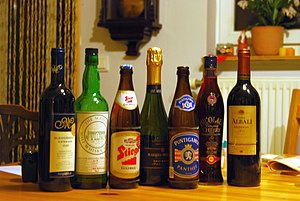Prominent Southern Baptists led state and national campaigns for prohibition since at least the 1880s.
Prohibition & Baptists 100 years later

by David Roach
Date: January 17, 2019 – Thursday
EDITOR’S NOTE: Jan. 16 marked the 100th anniversary of the ratification of the 18th Amendment to the U.S. Constitution, which outlawed “the manufacture, sale, or transportation of intoxicating liquors.”
NASHVILLE (BP) — When the 18th Amendment was ratified 100 years ago and prohibition became law of the land, the Southern Baptist Convention called it “the greatest victory for moral reform in America since the Declaration of Independence.”
The convention’s jubilance came in part because Southern Baptists had worked at least three decades to secure legal prohibition. They saw the 18th Amendment as a culmination of their labor. They also had come to view prohibition advocacy as a defining mark of Baptist identity.
Still, Southern Baptists wondered whether the anti-alcohol effort that helped bring about prohibition would persist.
A ‘sin against God’
Prominent Southern Baptists led state and national campaigns for prohibition since at least the 1880s. Southwestern Baptist Theological Seminary founder B.H. Carroll headed an 1887 Texas campaign for prohibition. In 1896, Baptist layman Joshua Levering — who chaired Southern Baptist Theological Seminary’s trustee board — was nominated by the Prohibition Party for president of the United States.
Beginning in 1890, the SBC “supported prohibition at every annual meeting” until it became law, wrote Bill Sumners, retired director of the Southern Baptist Historical Library and Archives, in a 1975 master’s thesis. The convention also appointed a permanent Committee on Temperance in 1910.
Greg Wills, professor of church history at Southern Seminary, said “a Christian duty to avoid consumption of alcohol” was “the fundamental issue” for Baptists, “not whether our states and municipalities would prohibit [alcohol’s] manufacture, sale and consumption.” Southern Baptists “believed you would be hard pressed to identify any other single factor that caused so much widespread suffering, injury and damage as the widespread abuse of alcohol.”
One of the SBC’s strongest statements against alcohol came in 1896, when it called “the policy of issuing government licenses” for “the liquor traffic” a “sin against God and a dishonor to our people.”
“We furthermore announce it as our conviction that we should by all legitimate means oppose the liquor traffic in municipality, county, State, and nation,” the convention stated. “Furthermore, we announce it as the sense of this body that no person should be retained in the fellowship of a Baptist church who engages in the manufacture or sale of alcoholic liquors.”
North Greenville University history professor Brendan Payne wrote in his 2017 doctoral dissertation, “With this official declaration, prohibition advocacy had become a defining issue of Baptist identity.”
At its first annual meeting following the 18th Amendment’s ratification, the SBC adopted a report stating, “Thus dawns the date for which we have labored and prayed…. It is the greatest victory for moral reform in America since the Declaration of Independence.”
The report also asked whether Baptists could “now cease or slacken our efforts” to combat alcohol. The answer was “an emphatic negative.”
‘A total failure’?
Nonetheless, prohibition was repealed in 1933. Some historians came to view it as a ludicrous public policy. Church historian Martin Marty told The World and Everything in It podcast Jan. 16, “Total prohibition was a total failure.”
But Don Cole, president of the Kentucky Ethics League, a partner organization with the Kentucky Baptist Convention that opposes alcohol, said prohibition helped America by initiating regulation of the alcohol industry.
“Everybody says prohibition didn’t work, but it did,” Cole said. “The advantage of prohibition was that we got regulations on alcohol.” The continuing regulation of alcohol begun by prohibition “saved many lives” and “has kept people from being injured.”
The SBC’s Social Service Commission noted in 1934 that “motor car accidents” and resultant fatalities decreased during prohibition. The commission presented tables and statistics to support that claim and said “economic sanity and moral welfare” took a “backward step” with the repeal.
Despite prohibition’s repeal, the SBC reaffirmed in 1934 “its unchanging devotion to the principle of total abstinence from all alcoholic beverages as the only safe and sane course of conduct for the individual and to the principle of prohibition of the manufacture, distribution and sale of alcoholic beverages by the government as the only economic and righteous policy.”
Baptists recognized the difficulty of enforcing prohibition, Wills said. But they “remained committed to seeking all helpful means to reducing the consumption of alcohol.”
Since 1934, the SBC has adopted at least 35 statements opposing alcohol, the latest in 2006.
Yet some wonder if concern about alcohol abuse is waning among Southern Baptists. They cite the lifting of alcohol bans at schools friendly to the SBC and statements by some Southern Baptist pastors indicating they consume alcohol.
Barrett Duke, executive director of the Montana Southern Baptist Convention, wonders if Baptists’ thinking on recreational marijuana use could follow a similar trajectory as their thinking on alcohol.
“In this day of antinomian attitudes in some evangelical circles, the idea of prohibition is frowned on, but … the record reveals that prohibition was generally good for the average American,” said Duke, a former public policy vice president at the Ethics & Religious Liberty Commission.
“We’re seeing a similar thing occur today with marijuana. Those who want to smoke it can find it. Many politicians are deciding that they might as well legalize it and try to wrest it away from the criminals,” Duke said in written comments. “Taking it out of the hands of criminals is a good idea, but we are already seeing communities that legalized marijuana reeling from the impact. Crime and health problems are increasing in communities with legalized marijuana. In addition, with the stigma of marijuana erased, we will see more people use it who otherwise would have left it alone.
“Marijuana should remain illegal, but I’m afraid that train has left the station,” he noted. “America will loosen its laws against marijuana even more before it realizes the price we’re paying for it.”
The original story can be found at: http://www.baptistpress.com/52261/prohibition-and-baptists-100-years-later
Reprinted from Baptist Press (www.baptistpress.com), news service of the Southern Baptist Convention.

David Roach
David Roach is chief national correspondent for Baptist Press, the Southern Baptist Convention's news service. BP reports on missions, ministry and witness advanced through the Cooperative Program and on news related to Southern Baptists' concerns nationally and globally.




Comments are Closed